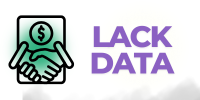.Question frequently asked by users concerned about their personal information. Both Telegram and WhatsApp are among the most popular messaging apps globally, boasting hundreds of millions of users who exchange messages, photos, videos, and calls daily. Despite serving similar purposes, their approaches to data privacy differ in important ways, influenced by their technological architectures, encryption policies, data collection practices, and business models. To make an informed choice, it’s crucial to dissect these aspects and understand how each platform protects user data and privacy.
Encryption Protocols and Message Security
One of the most significant factors telegram data in comparing Telegram and WhatsApp is their use of encryption. WhatsApp employs end-to-end encryption (E2EE) by default on all messages and calls, which means only the communicating users can read the content; not even WhatsApp itself can access it. This strong encryption standard is based on the Signal Protocol, widely regarded as one of the most secure in the industry. Telegram, by contrast, uses server-client encryption for most chats but only applies true end-to-end encryption in its optional “Secret Chats.” Regular Telegram messages are encrypted between the user and Telegram’s servers, which technically allows Telegram to access the message data. This difference means WhatsApp generally offers a higher baseline of of data privacy message confidentiality for everyday conversations.
Data Collection and Metadata Handling
also hinges on the type and amount of phone list marketing in 2025 and beyond data collected by each service. WhatsApp, owned by Meta (formerly Facebook), collects a significant amount of metadata — including phone numbers, device information, contact lists, and usage patterns — which is used to improve services and support targeted advertising within Meta’s broader ecosystem. Telegram, meanwhile, collects less personal data overall, emphasizing user anonymity and minimizing the metadata stored. Telegram does not require users to provide personal information beyond a phone number and claims not to share user data with third parties. However, Telegram does retain some metadata such as IP addresses and message timestamps for operational purposes, raising ongoing debates about privacy adequacy.
User Control and Privacy Features
User control is another important book your list dimension when examining Telegram offers a variety of privacy features that give users greater control over their data visibility, including options to hide phone numbers, disable message forwarding, and restrict who can see profile photos or last seen timestamps. Telegram’s “Secret Chats” provide self-destructing messages and screenshot alerts, enhancing privacy further. WhatsApp also offers privacy settings, such as controlling last seen visibility, blocking contacts, and muting conversations. However, WhatsApp’s privacy controls do not extend to enabling secret, fully encrypted chats beyond its standard messaging framework, as all chats are encrypted by default but stored on user devices and backed up to cloud services that may not be end-to-end encrypted.
Business Model and Impact on Data Privacy
A key factor influencing is their respective business models. WhatsApp operates under Meta’s umbrella, a company whose primary revenue derives from advertising of data privacy and data-driven services. This structure inherently involves significant data collection to support ad targeting and business intelligence, which can affect user privacy. Telegram, on the other hand, has a business model focused on user subscriptions and donations, with less emphasis on monetizing user data. Telegram’s founder, Pavel Durov, has positioned the app as a privacy-focused alternative, resisting monetization strategies that compromise user privacy. This philosophical difference translates into more conservative data privacy practices on Telegram compared to WhatsApp.
Handling of Cloud Storage and Data Backup
Cloud storage and data backup practices further differentiate. WhatsApp messages are primarily stored locally on user devices and backed up. On third-party cloud services like Google Drive or iCloud. Which may not always be protected by end-to-end encryption. This creates a potential vulnerability if those backups are compromised. Telegram, by contrast, stores most user data on its own encrypted cloud servers, allowing users to access their messages across devices seamlessly. While Telegram’s cloud storage is encrypted, it is not end-to-end encrypted by default, meaning Telegram technically has access to stored data. However, Telegram’s proprietary distributed infrastructure aims to enhance data security and reduce risks associated with centralized storage.
Transparency and Trust in Privacy Policies
Finally, transparency and corporate trustworthiness. Play a critical role in WhatsApp has faced criticism. Over its changing privacy policies and its close ties to Meta, raising user concerns about data sharing and surveillance. Despite promises of strong encryption, WhatsApp’s data-sharing agreements with Meta have fueled skepticism. Telegram, meanwhile, markets itself as a privacy champion with a clear focus on transparency. Pavel Durov has publicly resisted government data requests and frequently updates users about privacy practices. However, Telegram’s lesser regulatory scrutiny and reliance on proprietary encryption methods have also sparked debates about the real extent of privacy protection. Users must weigh these factors carefully when choosing between the two platforms.
